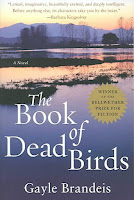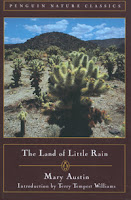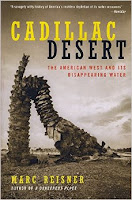This Thursday, May 26 at 7 pm, the University of Redlands Theatre department invites you to attend a free, open rehearsal of "The Hamlet Project" developed by Chris Beach and Doug Hammett at the Frederick Loewe Theatre.
Beach and Hammett's adaptation sets Shakespeare's tragedy in a dystopian world where people speak Shakespearean English while employing modern-day social networking and surveillance technologies.
This juxtaposition makes thematic sense given that the plot of Hamlet revolves around several crucial mysteries: has King Hamlet's ghost risen from the grave? How did the king really die? Why has Hamlet started to behave strangely? Shakespeare's characters seek eyewitness evidence to answer these questions, devising elaborate strategems to ensure that they can see without themselves being seen.
Surveillance has become a heightened concern in modern-day societies, with the introduction of digital technologies that expand the scope of what can be recorded, analyzed and inferred. Incorporating cameras, mobile devices and social networking into a production of Hamlet raises necessary questions about the value of privacy and the way in which societies throughout history have balanced security and liberty.
If you're interested in reading further, try searching the Armacost Library catalog for more information on electronic surveillance, privacy and digital technologies. Here are a few possibilities:
American Privacy: The 400 Year History of Our Most Contested Right
Frederick S. Lane
KF 1262.L36 2009
Attorney Frederick Lane reviews the role of privacy in American history, from the efforts to keep postal mail safe during Colonial times through the signing of the PATRIOT Act in October 2001.
Privacy in the Age of Big Data: Recognizing Threats, Defending Your Rights, and Protecting Your Family
Theresa M. Payton & Theodore Claypoole
KF 1262.P39 2014
Payton is a former White House Chief Information Officer and CEO of a fraud and risk consulting company. Claypoole is a technology attorney who heads the Privacy and Data Management team for a major law firm. They explain in plain English how popular consumer technologies can be used to gather data in unwanted ways, and what you can do about it.
Data and Goliath: The Hidden Battles to Collect Your Data and Control Your World
Bruce Schneier
HM846.S362 2015
Security analyst Schneier describes how corporations and governments have created a "surveillance society" at the cost of economic, civic and moral harms.
Unpopular Privacy: What Must We Hide?
Anita L. Allen
JC596.A44 2011
Is privacy always good? Should we have laws enforcing privacy, or should it be a matter of individual choice? Philosopher and laywer Anita Allen looks beyond the most popular and well-liked privacies, to ask whether unpopular - even coercive - privacies are also worthwhile, even if they require government regulation.
Sanjeet Mann
Arts & Electronic Resources Librarian
University of Redlands
Tuesday, May 24, 2016
"Seeing Unseen": Privacy, Surveillance and the Hamlet Project
Labels:
censorship
,
privacy
,
surveillance
,
theatre arts
Wednesday, May 11, 2016
The Lure of the Desert
“Men come and go, cities rise and fall, whole civilizations appear and disappear-the earth remains, slightly modified. The earth remains, and the heartbreaking beauty where there are no hearts to break. [...] I sometimes choose to think, no doubt perversely, that man is a dream, thought an illusion, and only rock is real. Rock and sun.”
~Edward Abbey (1990), Desert Solitaire, p. 194
In Southern California, we are surrounded by deserts. Specifically, the Colorado and Mohave Deserts, within which rests Mojave National Preserve, Joshua Tree National Park, the Salton Sea, and Anza-Borrego Desert State Park. These unique ecosystems, and long stretches of sky, have influenced and shaped the words of many writers.
For a broad view of literature of "The West", which would involve in some cases, deserts, A Literary History of the American West, located in the Reference Collection in Armacost Library is a useful volume to introduce oneself to the history and development of literature on this side of the continent. The book is sponsored by the Western Literature Association, and begins with the oral traditions of Native Americans and early travel narratives, followed by the bulk of the book, which covers authors in different areas of the West (including Southwest, Midwest, Rocky Mountains, etc.).
Edward Abbey (quoted above) is an essential author to read if you are fascinated with the desert landscape. His most well known work, Desert Solitaire: A Season in the Wilderness, documents his time spent as a park ranger at Arches National Monument, in which he reflects on his love of nature, and warns of the continuing desecration of our wild lands. This theme of desecration is continued in his novel, The Monkey Wrench Gang, which follows a group of ecological anarchists intent on demolishing tractors, trains, and bridges to protect the environment. Good News is one of his novels which tends to fly under the radar. It may be best described as a desert dystopia, which warns readers of the consuming march of civilization.
After you've explored Edward Abbey a bit, you may be ready to move on to the following books, which explore our local desert landscapes:
~Edward Abbey (1990), Desert Solitaire, p. 194
In Southern California, we are surrounded by deserts. Specifically, the Colorado and Mohave Deserts, within which rests Mojave National Preserve, Joshua Tree National Park, the Salton Sea, and Anza-Borrego Desert State Park. These unique ecosystems, and long stretches of sky, have influenced and shaped the words of many writers.
For a broad view of literature of "The West", which would involve in some cases, deserts, A Literary History of the American West, located in the Reference Collection in Armacost Library is a useful volume to introduce oneself to the history and development of literature on this side of the continent. The book is sponsored by the Western Literature Association, and begins with the oral traditions of Native Americans and early travel narratives, followed by the bulk of the book, which covers authors in different areas of the West (including Southwest, Midwest, Rocky Mountains, etc.).
Edward Abbey (quoted above) is an essential author to read if you are fascinated with the desert landscape. His most well known work, Desert Solitaire: A Season in the Wilderness, documents his time spent as a park ranger at Arches National Monument, in which he reflects on his love of nature, and warns of the continuing desecration of our wild lands. This theme of desecration is continued in his novel, The Monkey Wrench Gang, which follows a group of ecological anarchists intent on demolishing tractors, trains, and bridges to protect the environment. Good News is one of his novels which tends to fly under the radar. It may be best described as a desert dystopia, which warns readers of the consuming march of civilization.
After you've explored Edward Abbey a bit, you may be ready to move on to the following books, which explore our local desert landscapes:
Fiction
Nonfiction
Subscribe to:
Comments
(
Atom
)











